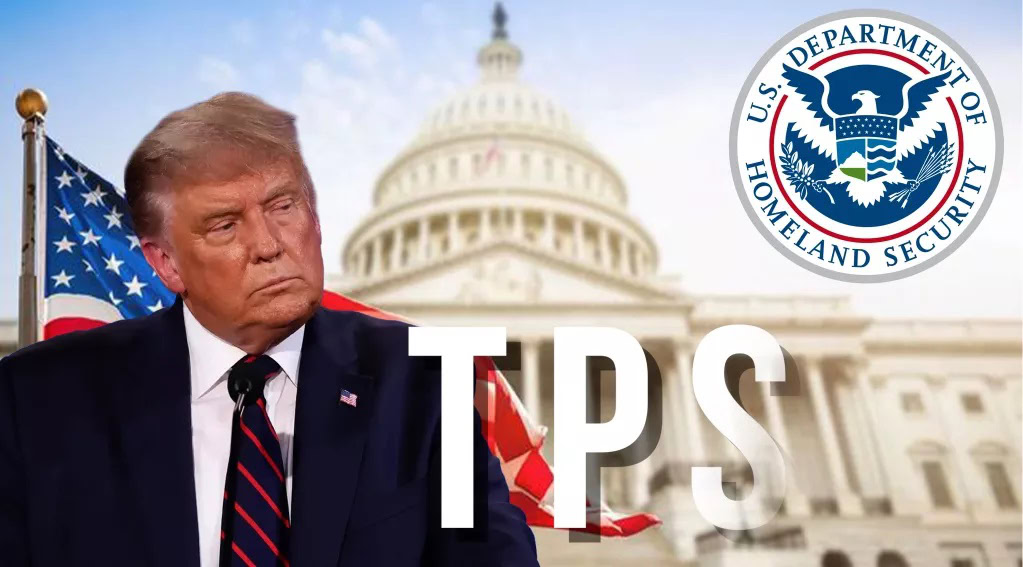By Ira Mehlman
FAIR
The Temporary Protected Status (TPS) program was created by Congress in 1990, with the best of intentions. And like other roads “paved with good intentions,” its faults quickly became evident.
The purpose of TPS was to allow foreign nationals who were present in the United States, regardless of their immigration status, to extend their stay due to some unforeseen crisis in their homeland. These situations might include natural disasters or armed conflict, and once the immediate crisis had passed, they would return home. In practice, however, most legal aliens do not need temporary protected status because they have visas that are either still valid when disaster struck, or their visas were convertible to another type of legal immigration status. Thus, TPS quickly became a program that mainly benefited illegal aliens.
The signature characteristic of TPS is that it is granted on a temporary basis due to temporary conditions in one’s home country. However, TPS has been repeatedly abused – under both Democratic and Republican administrations – to allow illegal aliens from designated countries to live and work in the United States indefinitely. Currently, nationals of 16 countries are covered by TPS, totaling 863,880 aliens as of March 31, 2024 (though over a million more are estimated to be eligible to apply and have not).
In perhaps the most egregious example of abuse, Hondurans and Nicaraguans were granted TPS after Hurricane Mitch ravaged those nations in October 1998 – more than 26 years ago. Since then, the U.S. government has acted numerous times to renew or extend TPS status for those countries.
Honduras and Nicaragua may hold the record for contorting the meaning of “temporary” in TPS, but there are other nationality groups, such as Salvadorans and Haitians, whose “temporary” stay in the U.S. has lasted decades. The incoming administration has indicated that they intend to restore TPS to its original intent. In an interview on News Nation prior to the election, President-elect Donald Trump was asked if he was prepared to revoke TPS in situations where that status is no longer justified by circumstances in the home countries. “Absolutely, I’d revoke it,” he replied.
Trump already attempted to end TPS for several countries during his first term as President. In 2020, the Trump administration attempted to terminate TPS for some 300,000 El Salvadorans, Haitians, Nicaraguans, and Sudanese on the grounds that circumstances in those countries no longer warranted allowing citizens of those countries to remain here. That effort was met immediately by a lawsuit filed by the American Civil Liberties Union (ACLU), arguing that the move was “unconstitutional as it was adopted to further the administration’s anti-immigrant, white supremacist agenda.”
The Ninth Circuit Court of Appeals – not generally known for ruling in favor of the Trump administration – rejected the ACLU’s claim in a 2-1 decision. The court concluded that the plaintiffs had no grounds to dispute the president’s decision to terminate TPS protections. “There is no judicial review of any determination of the [Secretary of Homeland Security] with respect to the designation, or termination or extension of a [TPS] designation,” the judges ruled. That ruling was handed down just six weeks before President Trump was voted out of office in 2020, and the incoming Biden administration opted not to terminate these designations.
More than simply terminating certain designations of Temporary Protected Status, Vice President-elect JD Vance went one step further on the campaign trail. He told a crowd of Arizona voters that under their administration the use of TPS would be more targeted. “We’re going to stop doing mass grants of Temporary Protected Status,” he said.
But any effort by the Trump-Vance administration to restrict or revoke TPS designations, or even to allow those designations to lapse, will undoubtedly be met with resistance. Those who enjoy that status, open-borders advocates and even foreign governments tend to view TPS more as an entitlement than a discretionary kindness on the part of the American people. This view that was reinforced by President Joe Biden on the first day of his administration, when he sent a bill to Congress calling for “an earned roadmap to citizenship” that included TPS holders along with other illegal aliens.
Thus, when President Trump reassumes office on January 20, he will be armed with a judicial ruling that supports his authority to revoke TPS designations that have long outlasted any reasonable definition of temporary protection. In doing so, he will not only protect communities across the country that have been forced to bear the burdens of large numbers of long-term TPS beneficiaries settling in their midst, but the integrity of the TPS program itself.
















